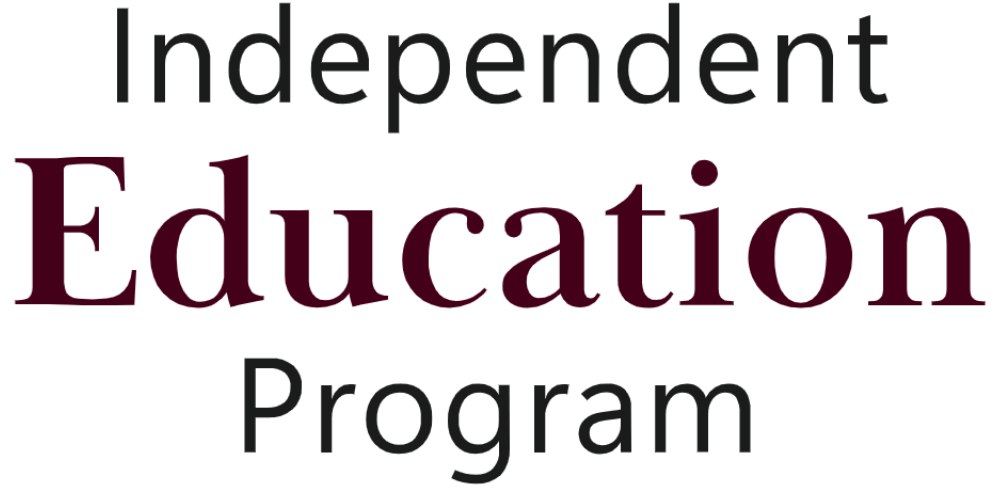Constitution Studies
The Constitution Studies Program is a two year program for students who want a rigorous experience getting to know one of the most crucial founding documents of the United States.
Intro to the Constitution
Course Overview
The Introduction to the Constitution is intended to enable students to thoroughly conceptualize the mechanics of the United States government, as they are laid out in the Constitution. While students will spend time memorizing constitutional text, and while we will help them to map out some of the Constitution’s most important sections and clauses, that is not what this class is fundamentally about. Rather, this class is about enabling students to explore the conceptual frameworks the Constitution is based on, such as the separation of powers, checks and balances, federalism, and positive rights. In the end, we hope to arm students with an understanding of the Constitution that enables them to navigate constitutional concepts, identify those ideas in the world, and engage in the crucial discussions that will shape society in years to come.
Class Curriculum and Structure
The first few weeks of the year focus on the framework of the Constitution. This is followed by delving into the text of the Constitution. For homework students will study a document or a portion of the Constitution and write an essay on what they have read. When they come to class they will be questioned on what they have studied followed by a discussion and their questions answered.
In class there will be simulations to reinforce concepts and debates to strengthen the students ability to verbalize their thoughts and conclusions. Having to explain the concepts to others cements the ideas in their own minds. It also gives them confidence to speak their thoughts and participate in meaningful conversations pertaining to the role of government and our rights as citizens.
There are a variety of games that are played in class that add a fun element to learning and understanding the course content. The course culminates in a Constitution Bee where students participate in a fun competition that tests their understanding and application of Constitutional concepts.
Core Skills
- Explain why the Founding Fathers included certain provisions in the Constitution
- Understand the content of the Constitution
- Apply understanding to governmental concepts and effect they have on personal liberties
- Explain the balance between republicanism and democracy
Key Principles
- Learning the powers granted to the federal government
- Learning the limitations placed on the federal government in the Constitution
- Understanding the separation of powers
- Knowing the system of checks and balances
Beginning Constitution FAQ
- What age should my child be to take this class?
Students should be at least 13 years old by September 1st of the school year they are registering.
- How much homework is there in this class?
A minimum of one hour a week and a maximum of two hours a week. This includes a combination of reading and writing.
- How is this class different from other constitution classes?
This class goes deeper into some of the philosophy that influenced the Founding Fathers. The principles are taught in context.
- What is required for the class?
A copy of the U.S. Constitution. (A pocket copy is sufficient.)
- What are the expectations of parents?
Be available to answer your child's questions and help them if they get stuck while doing homework. This does not mean completing the homework for them. It means asking them questions to move them along or explaining a concept. The students will always have the opportunity to ask questions in class.
- Who do I ask if I have questions?
You may contact our Constitution Director, Chuck Higgins, directly at chuck@ieprogram.org or 801-791-2526.
Constitution and Moot Court
Course Overview
The Constitution and Moot Court class is an academically rigorous dive into the content and application of constitutional law as it is understood today. Students will emerge from this class having experienced two major changes. First, they will be deeply familiar with key constitutional controversies that have colored the way we interpret and apply the Constitution today. Second, they will become skilled in the art of reading, dissecting, interpreting, applying, and responding to difficult legal and philosophical ideas.
Class Content and Structure
Core Skills
- Think critically through complex concepts
- Write coherent legal briefings that are properly cited
- Present oral arguments and answer questions about what they have studied
- Learn to see and present issues from both sides
Key Principles
- Plurality of ideas
- Complexity of issues
- Factors influencing judicial decisions
- Potential consequences of case outcomes
Moot Court FAQ
- What is the benefit of taking this class if my child has taken another constitution class?
The principles and clauses are explored in context, philosophy, and case law. The evolution of a concept is studied through court cases challenging the interpretation of particular provisions.
- Why should this class be taken if my child does not plan on attending law school?
For two reasons, one to learn and be knowledgeable with constitutional principles, their basis, and evolution to recognize valid arguments when discussed in personal conversations and in public discourse. Two, to recognize when constitutional liberties or protections are under attack.
- What tangible skills will my child learn?
To think critically about governmental principles, understand that most issues are not as simple as depicted in the media, and recognize secondary and tertiary ramifications of certain decisions.
- Who do I ask if I have questions?
You may contact our Constitution Director, Chuck Higgins, directly at chuck@ieprogram.org or 801-791-2526.
